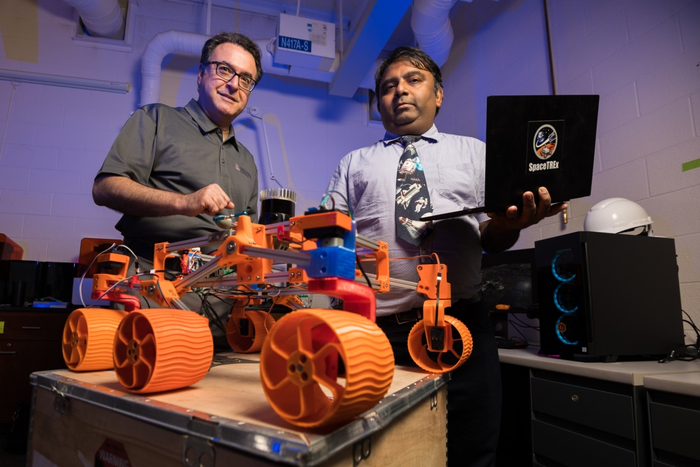Looks like it’s time to start colonizing the Moon…
Imagine, you want to build a house on the Moon (who knows, we might be moving to the Moon sooner than we think), wouldn’t it be easier to find all the building supplies right there instead of making short trips back to Earth every time you need something new? Now that would be a costly experience. Since scientists are already thinking about constructing bases on different celestial bodies in space such as the Moon, the concept of space-mining seems like a feasible idea.

Keeping this point in view, a team of researchers from the University of Arizona has received $500,000 in NASA funding for a new project which aims to advance space-mining using a group of autonomous robots. According to Moe Momayez, Interim head of the Department of Mining and Geological Engineering, “It’s really exciting to be at the forefront of a new field. I remember watching TV shows as a kid, like ‘Space: 1999,’ which is all about bases on the moon. Here we are in 2021, and we’re talking about colonizing the moon.”

Mining on the Moon’s surface could provide new potential of finding metals similar to those found on Earth since the Moon and the Earth have very similar chemical compositions. These metals could be useful in making smartphones and medical equipment. The biggest challenge faced by researchers right now is the process of drilling on the Moon’s surface to mine for these materials. That’s where the autonomous robots come in. Jekan Thanga, an associate professor of aerospace and mechanical engineering is working on a neuromorphic learning and architecture technique that would train the robots to work together to mine, excavate and even build different objects on the lunar surface. Initially, the robots would be trained on Earth but eventually, they will become fully autonomous and carry out their work on the Moon without receiving any instructions from back home. “In a sense, we’re like farmers. We’re breeding talent out of these creatures, or a whole family of creatures, to do certain tasks,” Thanga said. “By going through this process, we help perfect these artificial creatures whose job it is to do the mining tasks.”


